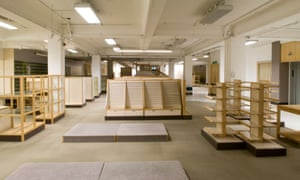Ahead of the vote on Ireland’s abortion laws tomorrow, gut-wrenching stories have poured forth: pregnant 15-year-olds coping, or dying, alone; women forced to travel to England to get an abortion, scraping together the cash with the clock set inexorably against them, miscarrying in a taxi back to the airport and thanking their stars they had the final tenner and it hadn’t happened on the bus. It would be an outrage for a society, anywhere in the world, to blithely let its women go through this. That it should happen on a neighbouring island and should go so unremarked upon in British politics speaks of an incredible failure of imagination.
The realities of living in a place where abortion is outlawed always seemed obvious, but somehow defanged by nostalgia. I thought all that stuff belonged to Vera Drake and the odd “issues”-based episode of Call the Midwife. I remember the features editor of a women’s magazine talking about a charity she was involved with that collected Irish women from abortion clinics, put them up and got them to the airport afterwards. “That’s weird,” I thought, “you don’t seem that political, because look at your glossy hair, whereas I consider myself really political, and this has never occurred to me.”
When the first Marie Stopes clinic opened in Belfast, I went to cover it. The shame and rage surrounding abortion, the raw facts of every woman’s body being every busybody’s business, revealed themselves in the details. There was no sign on the door, no clue of which floor to go to. It was sited in a building with plenty of anonymous footfall, including a Bupa downstairs that did a lot of screenings; every decision made to ensure that if a woman was spotted walking in, nobody could stick anything on her. Of course, a diligent anti-abortion campaigner was there round the clock, so rather than pregnant women escaping the glare of strangers, perfectly unpregnant women got yelled at on their way for a smear test. “Every female going into that building now, people are going to be wondering what she’s going in for,” a guy told me. Inside, there were no facilities to perform surgical abortions: they had the means, but they couldn’t, unless the woman’s life was threatened. So what was the point? It was a “clear pathway”: in a country where you can get thrown out by your GP just for asking what the law says, even a clinic that has to refer you to England is a lifeline.
The clinic has since shut, after Labour MP Stella Creasy’s 2017 amendment gave Northern Ireland’s women the right to NHS terminations. It should never have taken this long. In 1997, parliament had its first pro-choice majority, and Diane Abbott made the case that denying some women the reproductive rights the rest of the UK had was a breach of justice. She was blocked, not by the Conservatives, but by the Labour party, because, really, why make enemies over a bunch of women? But the failure of solidarity is no more New Labour’s fault than it is the fault of anyone who let it ride. I ardently hope, and actually believe, Ireland will vote to repeal the eighth amendment tomorrow, saluting the bravery of so many women, past and present. I wish I’d saluted it a bit sooner than the day before.
Planes, stamps, yachts? All in a day’s devilment for Johnson
Does Boris Johnson, or does he not, want his own plane? I was under the impression the facts were in: speaking in Buenos Aires, where he hopes to cement ties with that vital trading bloc whose markets, Argentina, Peru and Chile, represent 6% of the amount we export to Ireland, he complained that the prime minister’s plane was rarely available, being so often full of the prime minister. “The taxpayers won’t want us to have some luxurious new plane, but I certainly think it’s striking that we don’t seem to have access to such a thing at the moment,” he concluded.
Then I found myself in a surreal debate with the royal editor of the Sunday Express, Camilla Tominey, on Sky News. Apparently, he didn’t say he wanted a plane, he was merely surprised he didn’t have one. In the opposite world, where Johnson is a serious human being and a national asset, he’s not the trivial one; newspapers are trivial for repeating his trivial remarks.
Johnson is always after something in his quest for bulldog pride: he wants a new royal yacht, to signify … I don’t know, maybe how rich we must be as a nation, to spend a load of money on a family who are already richer than all of us combined. He wants commemorative stamps “to show we’ve got Brexit licked”; he wants planes, probably also trains, and automobiles: nothing is too frivolous and profligacy is half the charm of his wheezes, since spending money you don’t have is a sign of confidence, which is what proper British people have.
This half-witted hooligan, capering on the world stage with a box of Fun Snaps, creating mini-explosions in a spirit of devilment, is foreign secretary. Some mornings, still, that feels like the most incredible fact of our extraordinary politics.

Sausage rolls and coffee won’t save our shops
Marks & Spencer is to close 100 branches, to nobody’s delight, because jobs will be lost, and besides – as with Paddy Power and Clarks – we liked the familiar hum of their existence even if we would have no idea what to do inside one. The post-internet high street of a stagnant economy is basically coffee, charity shops and two outlets of Greggs situated close enough to one another that when you realise how delicious that sausage roll was, you can go in and get another before you’ve even finished it. You need a plan, digital natives, for re-energising commerce, maybe with performance art. This is your doing. I never really came round to shopping online.